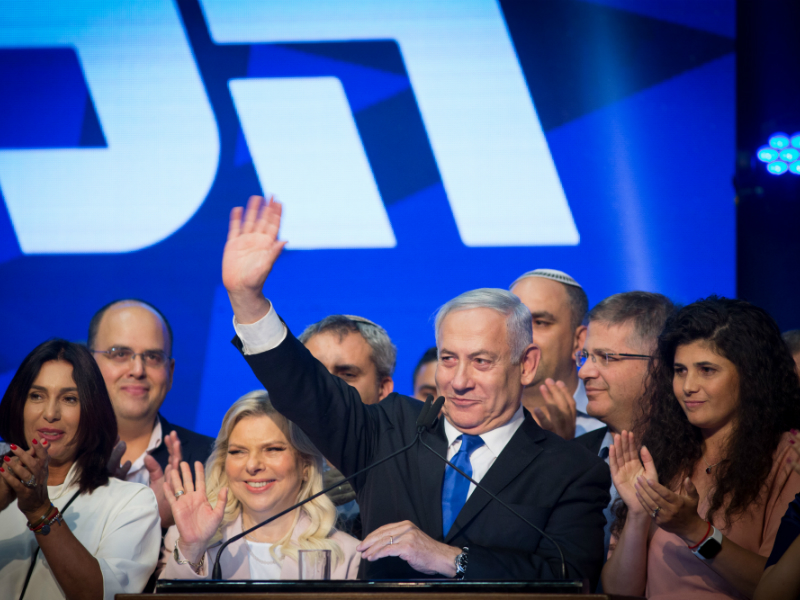The results of the September 2019 Israeli elections have put Israel once again in an unprecedented situation. The two largest parties, Likud and Blue and White, won almost the same number of Knesset seats, and neither is able to form a coalition. As of this writing, it seems that the only reasonable solution is for the two parties to form a national unity government, which would have a solid enough base to deal with major national challenges: the economy, security, healthcare, social cohesion and more.
Examining the platforms of the two parties, it is difficult to point a finger at specific unbridgeable ideological differences between them, especially when one considers that the alternative to a national unity government is a third general election, with all the negative implications thereof once again replayed.
Most Israelis agree that the barrier preventing a national unity government composed of the two largest parties, is Benjamin Netanyahu, Israel’s prime minister of many years. More exactly, Netanyahu and his personal fight to prove his innocence of alleged corruption scandals and escape punishment.
But Netanyahu showed already after the April elections that he is bound and determined to take Israel once again to the polls because of his own personal interests to avoid criminal proceedings. That is also why he methodically attacks the legal and law enforcement institutions of the country, such as the Supreme Court, the police, and the State Attorney’s Office. Furthermore, Netanyahu works tirelessly at the parliamentary level, to enact laws that will grant him immunity from legal proceedings.
Each Israeli must reach their own conclusion when asking this question: is it ethical to sacrifice so much of Israel’s resources on the altar, for the benefit of salvaging the reputation and – perhaps if found guilty – the freedom of one single person, no matter how significant his contributions have been to the country?
For comparison, let us examine the obligations of a soldier in the IDF. At the start of their service, soldiers swear loyalty to the State of Israel with these words:
“I hereby swear and commit myself, upon my honour, to be faithful to the State of Israel, to its laws and authorized government, to take upon myself unconditionally and unreservedly the discipline of the Israel Defence Forces, to obey all commands and instructions given by the authorized commanders, and to dedicate all my strength and even sacrifice my life to defend my homeland and the freedom of Israel.”
Thirty-five years ago, I took that oath atop Masada. I remember the goosebumps I felt as I loudly declared my commitment to sacrifice my very life for my homeland. Thirty-five years on, three of my children have now taken that same oath. To hear them commit themselves to sacrifice their lives, was even harder for me than making that commitment myself.
At the IDF officer training school we were educated that, “Officers eat after their soldiers” and “Personal example is the foundation of all leadership.”
I write these words just after Yom Kippur, the “prime time” of national and personal soul-searching and ask: is our prime minister, the commander in chief of the IDF, setting a worthwhile and respectable personal example of his commitment to the country?
May we all be sealed in the Book of Life for a good year!
